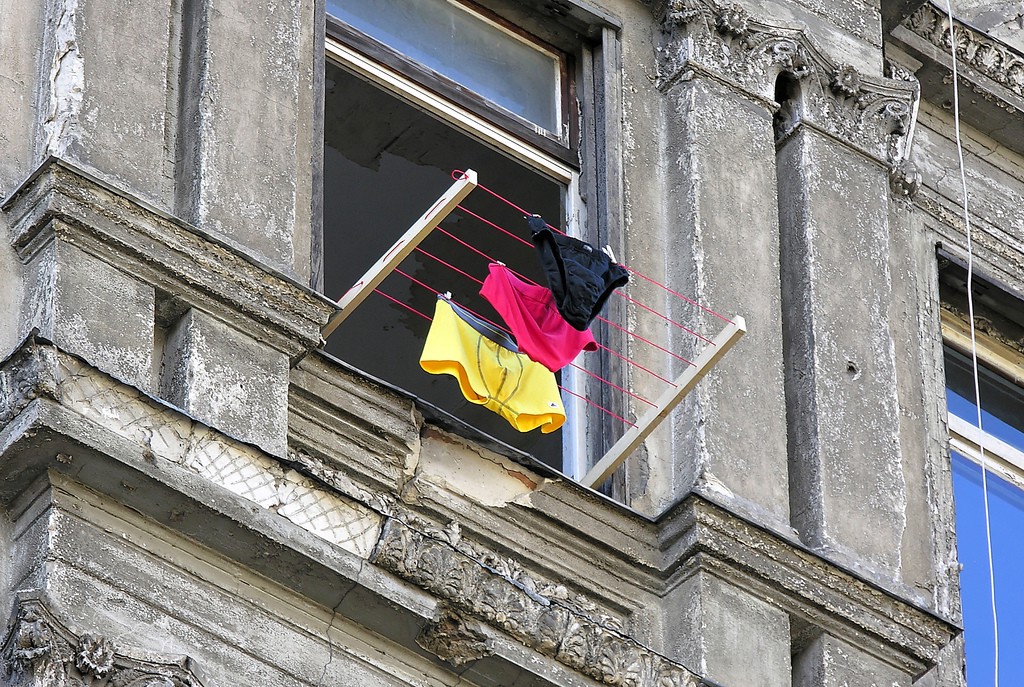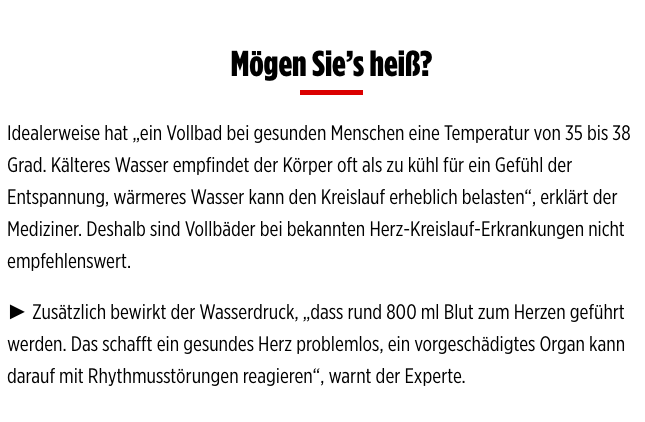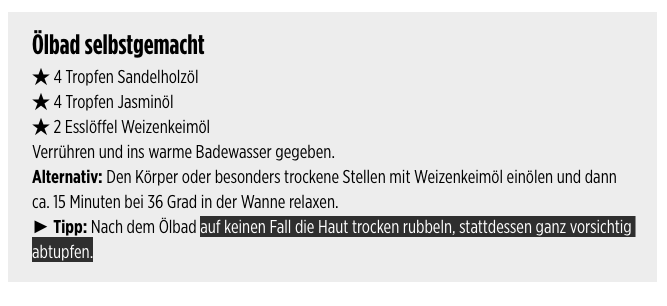Deutschland Über Us
Obey these rules for taking a bath, or else. (NSFW!)

Just So You Know: This is about Germans, so it contains full-frontal nudity.
If it’s late February, that means it’s time for what the Germans call Schmuddelwetter. That’s an untranslatable term that our tiny-bespectacled betters use to mean, basically, “grim weather,” but which also has connotations of “dirty” and “grimy”—think, for instance, of that lone, vile, incrementally shrinking, soot-covered pile of plowed snow in the corner of the Trader Joe’s parking lot that’s been there since December and is now mottled with Yoo-Hoo bottles and urine. (Fun fact: Phoebe’s “Smelly Cat” song in German is called “Schmuddelkatz.” Now you know.)
Although it’s impressive that Germans have, once again, found a single word to conjure up a very specific sort of seasonal despair, fear not: There is a cure for Schmuddelwetter: a nice long, relaxing, complicated, pedantic, rule-filled bath, at least according to the highly respected scholarly journal Bild (just kidding; Bild is an unholy amalgam of the Daily Mail and USA TODAY, a.k.a. the most widely read non-Asian publication in the damn world). Yes, says Bild, you, too, can “bathe without risk” — so long as you “obey some rules.” About taking a bath. In a bathtub. Which you have presumably been doing without incident since you were zero years old.

The consequences of disobeying these rules are varied, from mild dehydration — “just like after playing sports or visiting the sauna,” you should drink “sufficient water” after a bath, warns an actual medical doctor Bild consulted for this article—to, I am assuming, jail time, alongside the denizens of Berlin who skipped out on their U-Bahn fare.

Yes, these Bade-Tipps are absurd, and yet they should not be surprising, given how much Germans love rules (or, at any rate, most Germans). The Teutonic propensity for rule-following appears with astonishing predictability throughout centuries of German history, not unlike the “red thread” metaphor Johann Wolfgang von Goethe employs in The Elective Affinities — that thread, woven throughout the ropes of the British navy, he explained, would mark even the smallest cuttings as belonging to the Crown. Similarly, show me a snippet of German culture, no matter how tiny, and I will show you embedded in it a reverence for rules. (Another fun fact: In The Elective Affinities, which is by far Goethe’s shittiest work—and I include Faust II: Bat-Shit Boogaloo in this distinction—Goethe deploys a scientific fad to invent a rule that justifies his middle-aged protagonist’s affair with a teenage girl.)
The reign of rule-following in Germany has certainly brought its share of catastrophe, some of it unthinkable — but I still think the Germans’ Regellust (literally: “rule lust”), as an Austrian colleague of mine once dubbed it, gets a bad Ruf, i.e. reputation. (If you Google “Regellust,” by the way, you’ll get a lot of Reddit-type message boards about having sex on your period, since die Regel means “rule” but also “menses.”) Still, though, so long as it appears in moderation, the (again, typical but not universal) German lust for rightness, justice, and law-abiding — all, unsurprisingly, evoked in the same word, das Recht — can enable not only an admirable coolness in the face of harsh criticism, but also, I’m going to out on a limb and say it makes Germans better friends than Americans. Yes, that’s right: uptight, cold Deutschland eins; folksy, welcoming U.S., null.

I admit that this may seem counterintuitive. When people find out I have a PhD in German, the first thing they often say is: “That language sounds so mean.” Here’s a secret: it’s not the language. Germans actually are yelling at people, all the time. If you’d like to test out this scientific hypothesis, simply enter any grocery store in the Federal Republic, and attempt to pay for an orange without first weighing it yourself, on a special scale in the produce section whose only purpose is to spit out self-service price tags for fruit.
Of course, those without access to German supermarkets who still wish to see Regellust in action need look no further than Notes of Berlin, a delightful repository of epistles typed, printed out, and often affixed with liberal amounts of tape to bannisters, doors and walls all over the German capital. In one, an irate neighbor in the bourgeois district of Charlottenburg decries the activities of a Falschparker — someone who has blocked the driveway with his car. “I hope that you and your young family have a life-or-death emergency, and the fire department can’t get in,” says the note — using, of course, the formal “you,” Sie. (These people are not intimate friends, after all, so politeness is a must.)

The Notes of Berlin are actually the latest in a grand German literary tradition of righteous (and often petty) indignation in the face of injustice. Heinrich von Kleist’s novella Michael Kohlhaas, for example, is about a horse trader, a victim of a bureaucratic mishap — who, in reaction, sets most of Saxony on fire. Kleist would be delighted to learn that today, at least, contemporary Germans seem to have mitigated their cultural Regellust into more positive avenues, such as making sure everyone knows the correct temperature for a bath is between 35 and 38 degrees (95–100.4ºF), god dammit.

So, why, again, are we supposed to look to these people for their expertise in interpersonal relationships? How could anyone who finds it necessary to remind you that under no circumstances should you rub yourself dry after a bath possibly be any fun to hang around with?
Because, my fellow Americans, being obsessed with rules and Recht means that Germans are always criticizing and being criticized, and thus not as prone to fits of passive-aggressive seething hatred poorly camouflaged by chirpy outward fake-friendliness, a.k.a. the American Way, a.k.a. one of the many reasons most of us over 30 have approximately zero real friends. Germans have shit-tons of real friends, and abject proof of this is the dulcet sound, ringing off every cobblestone and throughout every Bierhalle, of the explosive ch and guttural rolled r sounds that echo forth from the never-ending arguments over the right way to, oh I don’t know, take a bath.
But that insufferable pedantic streak in almost every German is worth it. For since the constant need to be right and just often outweighs any pretense toward shallow civil niceties — to which Germans are averse anyhow — they are free to fight with each other until the wee hours, about whatever they please, and still remain BFFF, and that actually makes them easier to hang around. (They also really like bathing naked in public, bringing all of my interests here together, in a sort of Faustian parallel structure.) For while a nice hot bath surely helps, I don’t think I’m alone in suspecting that the real cure for Schmuddelwetter is something else. Something, perhaps, that does not necessarily require aromatic oils or constant temperature monitoring: the company of an actual friend (Busch optional).
